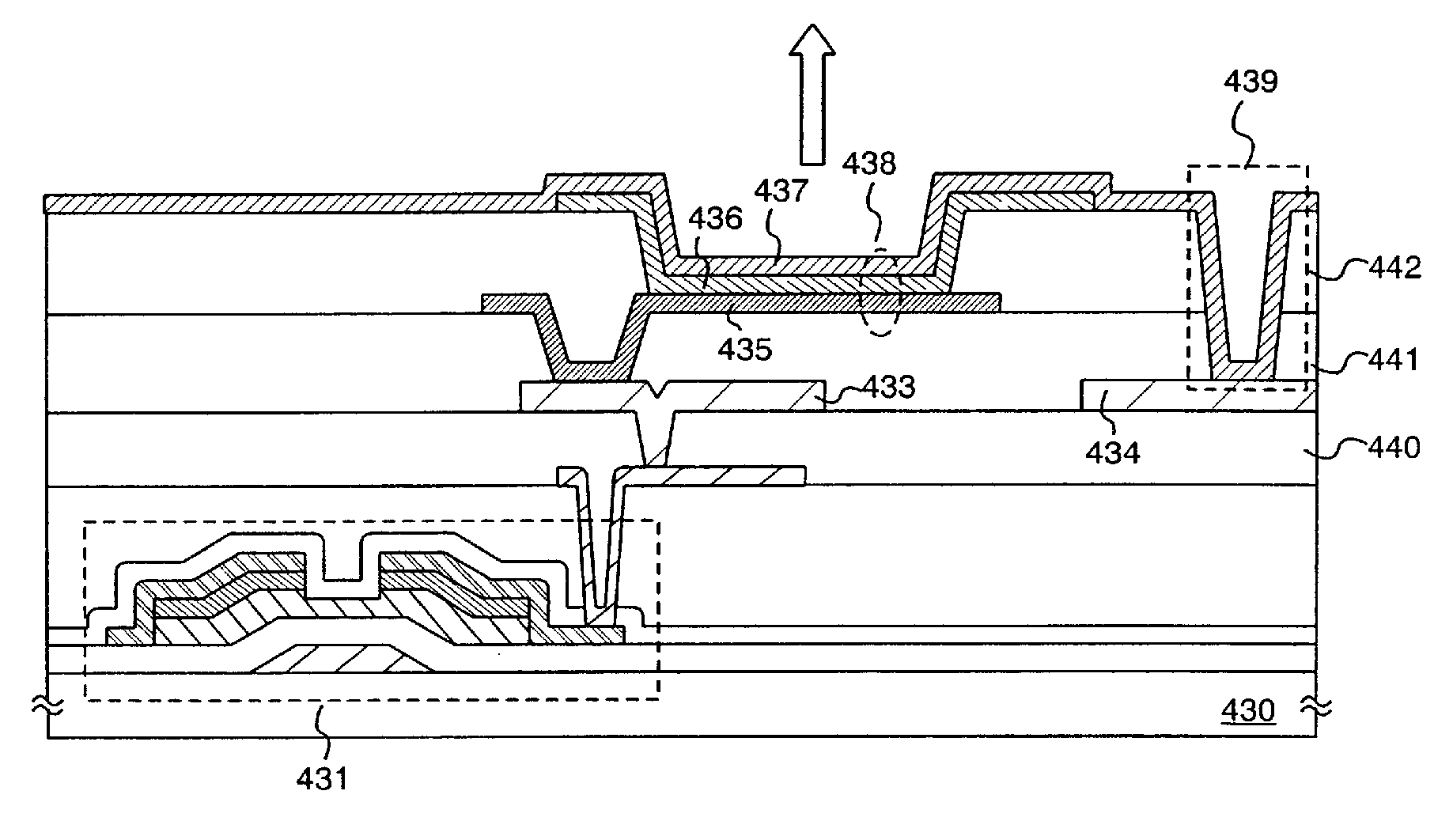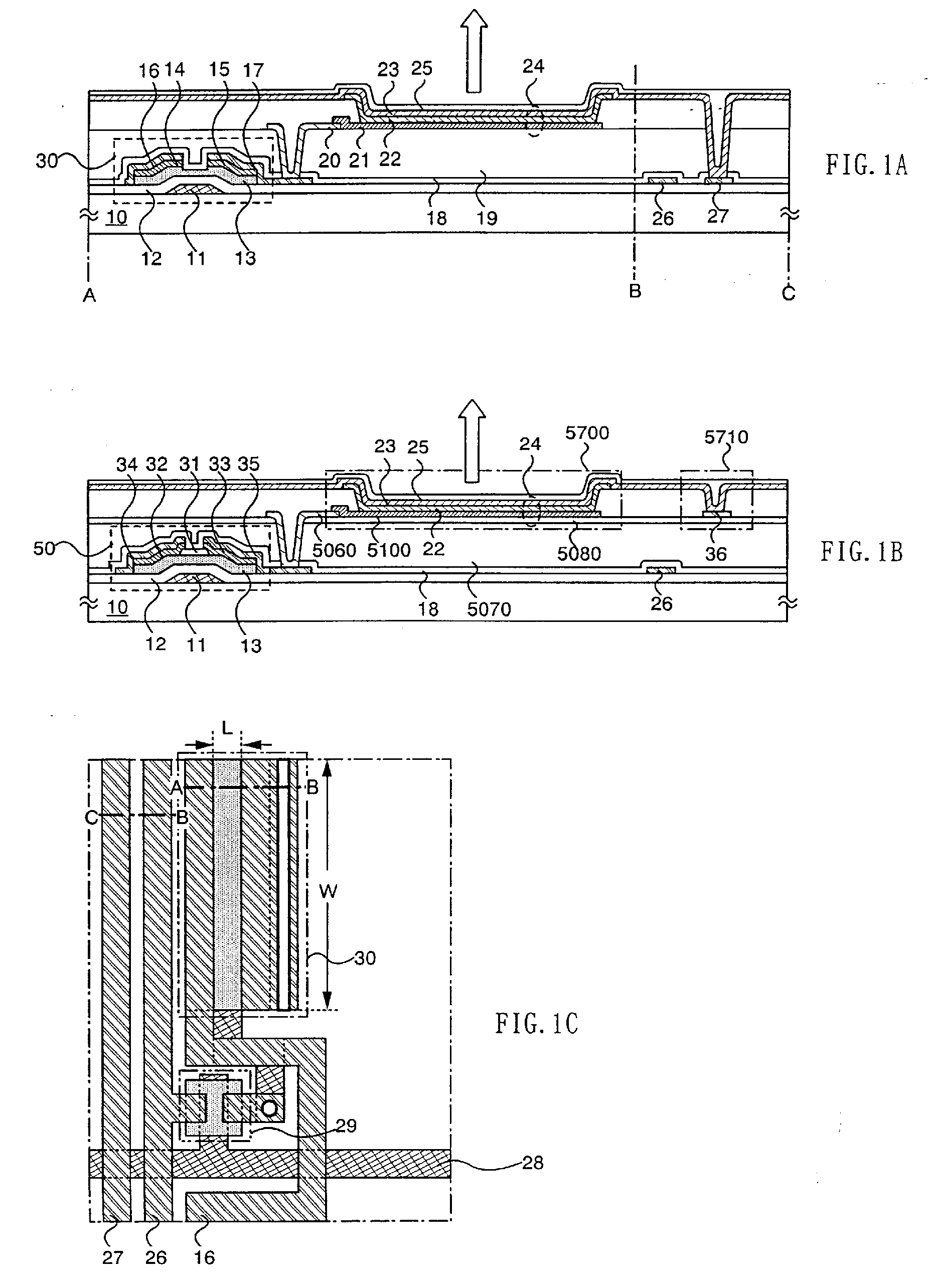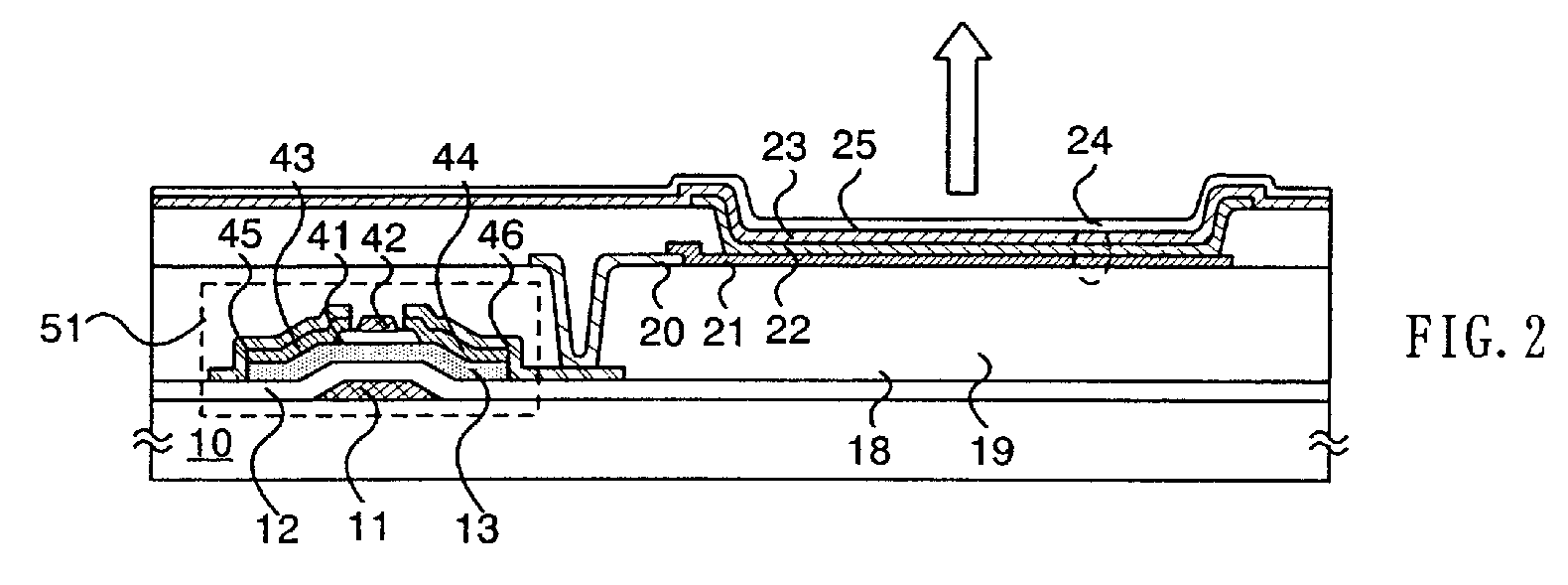Display device and electronic apparatus
a technology of electronic equipment and display device, which is applied in the direction of discharge tube luminescent screen, identification means, instruments, etc., can solve the problems of low heat resistance of the electronic luminescent layer, degraded image quality, and inability to withstand high heat processing, so as to prevent the degradation of the light emitting element with time, improve reliability, and suppress the effect of variations in luminance due to transistor characteristics
- Summary
- Abstract
- Description
- Claims
- Application Information
AI Technical Summary
Benefits of technology
Problems solved by technology
Method used
Image
Examples
embodiment mode 1
[0041] With reference to FIGS. 4A and 4B, explanation is made on an arrangement of wirings on a panel, especially an arrangement of a power supply line (hereinafter referred to as an anode line) with the same potential as a high potential voltage VDD, and a power supply line (hereinafter referred to as a cathode line) with the same potential as a low potential voltage VSS. It is to be noted that only wirings arranged in columns in a pixel portion 104 are shown in FIGS. 4A and 4B.
[0042]FIG. 4A is a top plan view of a panel comprising a substrate 100. On the substrate 100, the pixel portion 104 in which a plurality of pixels 105 arranged in matrix, a signal line driver circuit 101 arranged at the periphery of the pixel portion 104, and scan line driver circuits 102 and 103 are disposed. The number of driver circuits is not exclusively limited, and may be changed in accordance with a configuration of the pixel 105. Further, the driver circuits are not necessarily formed integrally on ...
embodiment mode 2
[0071] An embodiment mode of the invention is described with reference to drawings.
[0072]FIG. 8A is a top plan view of a panel which includes a substrate 200 having an insulating surface. On the substrate 200, a scan line driver circuit 203 and a pixel portion 202 including a plurality of pixels 201 arranged in matrix are formed. A plurality of driver ICs 205 are attached on the substrate 200, and the plurality of driver ICs 205 correspond to a signal line driver circuit 204. The scan line driver circuit 203 and the signal line driver circuit 204 are connected to a power supply circuit 206 and a controller 207.
[0073] The power supply circuit 206 supplies power to the panel, and is connected specifically to a power supply line disposed in the pixel portion 202. The power supply line is also referred to as an anode line or a cathode line. The anode line has the same potential as a high potential voltage VDD and the cathode line has the same potential as a low potential voltage VSS. ...
embodiment mode 3
[0080] In this embodiment mode, a cross sectional structure of a CMOS circuit including an N-type transistor whose channel portion is formed of an amorphous semiconductor and a P-type transistor whose channel portion is formed of an organic semiconductor will be described with reference to FIGS. 10A and 10B.
[0081]FIG. 10A is an equivalent circuit diagram including a P-type transistor 221 and an N-type transistor 222 which are connected in series, and one terminal of which has the same potential as VDD and the other has the same potential as VSS. FIG. 10B is a cross sectional view of these transistors. In FIG. 10B, conductors 231 and 232 are formed on the substrate 200, and a silicon nitride 233 is formed thereon. Then, an amorphous semiconductor 234 is formed on the silicon nitride 233, and another silicon nitride 241 is formed thereon. On the silicon nitride 241, an N-type semiconductor and a conductor are laminated in this order, and then patterned simultaneously to form N-type s...
PUM
 Login to View More
Login to View More Abstract
Description
Claims
Application Information
 Login to View More
Login to View More - R&D
- Intellectual Property
- Life Sciences
- Materials
- Tech Scout
- Unparalleled Data Quality
- Higher Quality Content
- 60% Fewer Hallucinations
Browse by: Latest US Patents, China's latest patents, Technical Efficacy Thesaurus, Application Domain, Technology Topic, Popular Technical Reports.
© 2025 PatSnap. All rights reserved.Legal|Privacy policy|Modern Slavery Act Transparency Statement|Sitemap|About US| Contact US: help@patsnap.com



